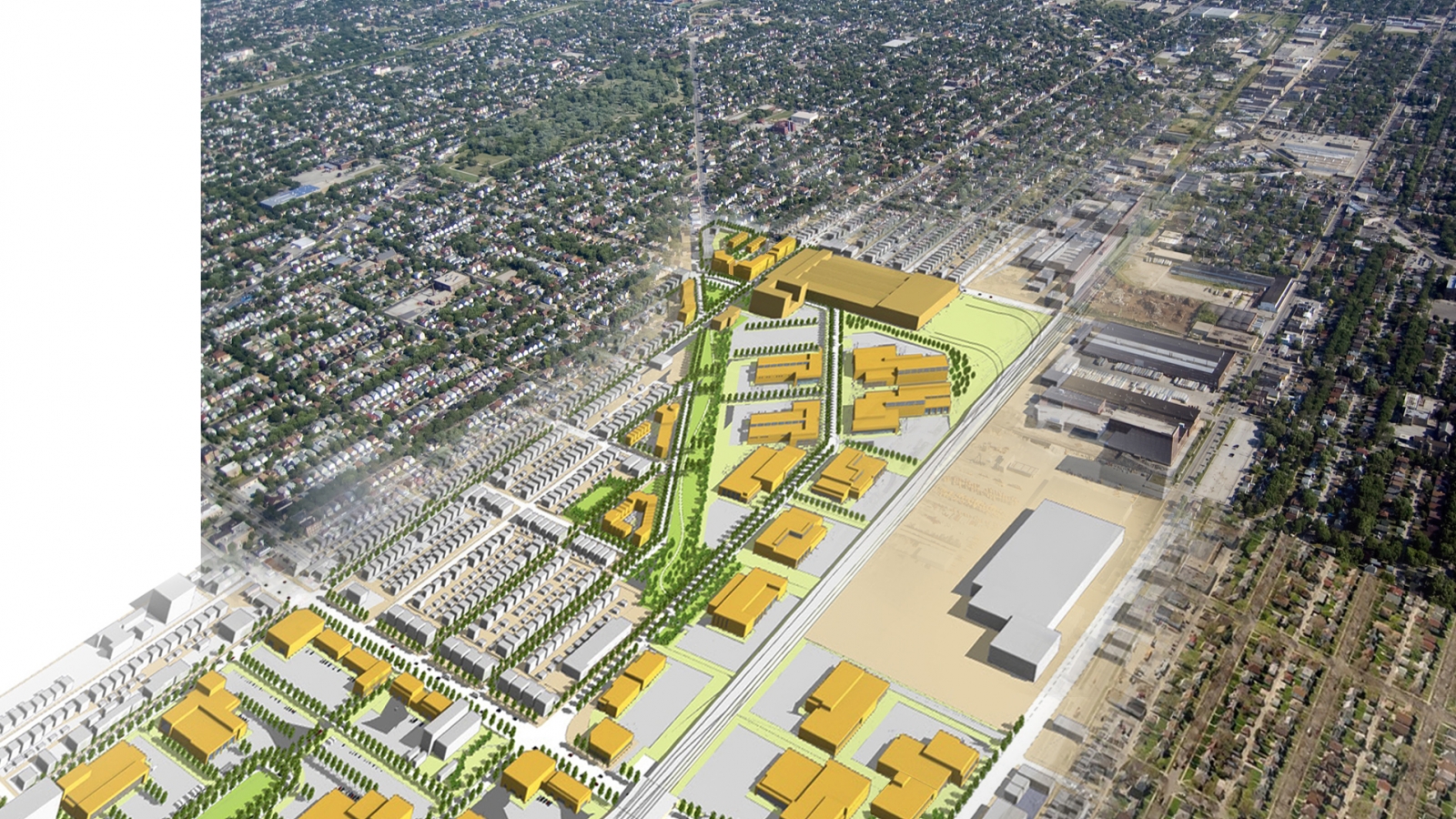
N. 35th St. and W. Capitol Dr. TID Economic Feasibility Analysis
SB Friedman has performed multiple engagements in Milwaukee’s 30th Street Corridor industrial area in support of the City of Milwaukee’s intensive community and economic development efforts in the area. In 2008, SB Friedman was engaged by the Milwaukee Department of Community Development (DCD) to conduct an economic feasibility study for the proposed redevelopment of the former Tower Automotive site in the 30th Street Industrial Corridor. At the time of the study the City was contemplating the acquisition of the 84-acre former Tower Automotive site and the establishment of a related Tax Incremental District (TID) to assist in funding reinvestment efforts. The centerpiece of the proposed redevelopment project by the City is the modern Century City Business Park, which is anticipated to attract job generating industrial/business uses. In addition as a part of the major redevelopment initiative and neighborhood revitalization effort, the plan includes ancillary commercial development to serve the business and residents within the Corridor and new residential development.
SB Friedman examined the overall market potential, land value generation and absorption pace for the proposed business park, retail and residential uses. In addition, based on the information gathered in the market study and input provided by the City, we analyzed the potential for future incremental property tax revenues and land sale revenues to cover proposed TID expenditures that the City may incur as part of the redevelopment effort.
Results: In 2009, the City closed on the Tower Automotive site acquisition, and is actively pursuing redevelopment. The Spanish railroad car manufacturer Talgo has placed a manufacturing operation on the Site, and the City is actively engaged in master planning the balance of the property with the assistance of an SB Friedman-led consultant team.
30th Street Corridor Land Use Analysis and Economic Development Master Plan
In 2009, the City of Milwaukee engaged SB Friedman to conduct a land use assessment and redevelopment strategy for the 30th Street Industrial Corridor. Our analysis for the study included:
- Assessment of existing land uses and land use conflicts
- Inventory of sites susceptible to change, including vacant and underutilized properties
- Review of transportation and access, site suitability, and other Corridor competitiveness issues; and
- Determination of areas that should be considered for non-industrial uses due to land use conflicts, parcel size/shape, or other factors
This analysis has served as important groundwork for a more comprehensive Economic Development Master Plan effort. In July 2010, the City engaged a multi-disciplinary team led by SB Friedman and including AECOM to prepare Master Plan for the Corridor, with a particular emphasis on the 86-acred City-owned Tower Automotive/Century City site.
The planning process includes:
- A detailed sector-based economic assessment of the potential for Milwaukee and the Corridor to compete for future job-generating development. This study is currently being integrated into the efforts of Milwaukee Seven, a regional civic-led economic development consortium, to market the region and the Corridor.
- A study of analogous real estate transactions to optimize industrial parcel sizes and site layouts for the proposed Century City business park.
- Master planning concepts reviewing potential street reconfigurations, land uses, and public amenities for catalytic sites in the Corridor; and
- An implementation action plan.
Results: The Master Plan process is entering its final phase—development of a preferred concept, with expected adoption in the second quarter of 2011.
Bishop’s Creek Family Housing TID
In 2008, SB Friedman conducted a review of a proposed multi-phase redevelopment project sponsored by Bishop’s Creek Community Development Corporation on the northwest side of Milwaukee at the north end of the 30th Street Corridor. The project’s first phase includes a 55-unit affordable rental apartment building to be developed by Common Bond Communities. Due to Section 42 tax credit equity pricing issues and other extraordinary site issues, the project developers approached the City of Milwaukee with a two-party TIF financial assistance request. On behalf of the Milwaukee Department of City Development, SB Friedman:
- Reviewed the Common Bond Phase 1 project pro forma
- Reviewed Bishop’s Creek CDC’s land development pro forma for Phase 1 and subsequent phases
- Analyzed TIF revenues to be realized in the proposed tax incremental district (TID) from both the Phase 1 site and broader property valuation trends in the neighborhood
- Projected TID capacity and determined the supportable level of City assistance
- Assisted the City of Milwaukee in negotiation two separate term sheet agreements with the project developers.
Results: The proposed assistance was approved by the Milwaukee Common Council in December 2008.